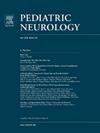儿童神经内科住院医师的儿科姑息治疗教育:国家需求评估
IF 3.2
3区 医学
Q2 CLINICAL NEUROLOGY
引用次数: 0
摘要
儿童神经科医生需要初级姑息治疗(PC)技能来照顾高症状负担和可变预后的患者。目前在儿童神经学培训中PC教育的范围尚不明确。我们对美国儿童神经内科住院医师的儿科PC教育进行了一项基于全国调查的需求评估。方法通过直接招聘项目主任/协调员和儿童神经病学协会连接平台,制定和分发住院医师和项目调查。采用描述性统计和特定对照组的探索性事后比较对调查结果进行分析。结果79名居民和18个项目完成了调查。受访者代表了美国所有人口普查地区和神经病学培训年份。六个核心儿科PC主题的课程和临床暴露各不相同:17名(22%)住院医生参加了PC轮转,3个(17%)项目要求PC轮转,13个(72%)项目提供PC选修课。增加研究生学年(PGY)水平和PC选修课经验与对严重疾病沟通要素的信心增加有关,增加PGY水平也与神经预后和姑息性症状管理要素的信心增加有关。住院医师和项目都报告了额外的儿科PC教育的愿望和动机。结论:目前的儿童神经内科住院医师报告在六个儿科PC领域中的三个领域对PGY水平的信心增加。尽管如此,受访者仍然表示希望和有动力接受额外的培训。我们的研究结果强调,虽然在儿童神经病学住院医师中发展了一些基本的计算机技能,但仍需要更正式和加强的儿科计算机教育。本文章由计算机程序翻译,如有差异,请以英文原文为准。
Pediatric Palliative Care Education in Child Neurology Residency: A National Needs Assessment
Background
Child neurologists require primary palliative care (PC) skills to care for patients with high symptom burdens and variable prognoses. The existing scope of PC education in child neurology training is unclear. We conducted a national survey-based needs assessment of pediatric PC education in child neurology residencies in the United States.
Methods
Resident and program surveys were developed and distributed via direct recruitment of program directors/coordinators and the Child Neurology Society Connect platform. Surveys were analyzed using descriptive statistics and exploratory posthoc comparisons in specific comparison groups.
Results
Seventy-nine residents and 18 programs completed the survey. Respondents represented all US census regions and neurology training years. Curricular and clinical exposure to six core pediatric PC topics varied: 17 (22%) residents participated in a PC rotation, three programs (17%) require a PC rotation, and 13 programs (72%) offer a PC elective. Increasing postgraduate year (PGY) level and PC elective experience were associated with increased confidence in elements of serious illness communication, and increasing PGY level was also associated with increased confidence in elements of neuroprognostication and palliative symptom management. Both residents and programs reported a desire and motivation for additional pediatric PC education.
Conclusions
Current child neurology residents reported increased confidence over PGY level across three of six pediatric PC domains. Still, respondents reported desire and motivation for additional training. Our results highlight that although some primary PC skills are developed in child neurology residencies, there is a need for more formalized and enhanced pediatric PC education.
求助全文
通过发布文献求助,成功后即可免费获取论文全文。
去求助
来源期刊

Pediatric neurology
医学-临床神经学
CiteScore
4.80
自引率
2.60%
发文量
176
审稿时长
78 days
期刊介绍:
Pediatric Neurology publishes timely peer-reviewed clinical and research articles covering all aspects of the developing nervous system.
Pediatric Neurology features up-to-the-minute publication of the latest advances in the diagnosis, management, and treatment of pediatric neurologic disorders. The journal''s editor, E. Steve Roach, in conjunction with the team of Associate Editors, heads an internationally recognized editorial board, ensuring the most authoritative and extensive coverage of the field. Among the topics covered are: epilepsy, mitochondrial diseases, congenital malformations, chromosomopathies, peripheral neuropathies, perinatal and childhood stroke, cerebral palsy, as well as other diseases affecting the developing nervous system.
 求助内容:
求助内容: 应助结果提醒方式:
应助结果提醒方式:


